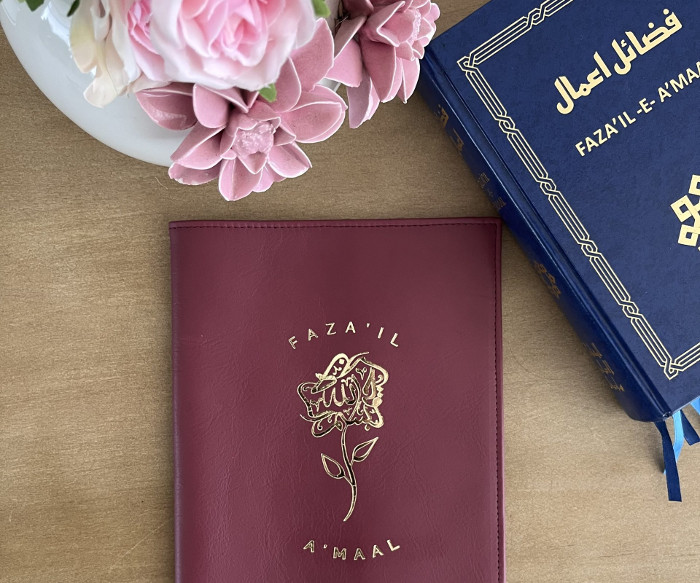
Hazrat Umar (radhiyallahu 'anhu) and the Fear of Allah Ta'ala - Part Two
Once, when Hazrat Umar (radhiyallahu ‘anhu) was going towards Harrah (a place on the outskirts of Madinah Munawwarah) with his slave, Aslam, he saw a fire burning in the desert. He said, “There seems to be a camp. Perhaps it is a caravan that could not enter the town due to night fall. Let us go and look after them and arrange for their protection during the night.”
When he reached there, he found a woman and some children. The children were crying. The woman had a pot of water over the fire. Hazrat Umar (radhiyallahu ‘anhu) greeted her with salaam, and sought permission to enter her presence.
Hazrat Umar (radhiyallahu ‘anhu) asked her, “Why are these children crying?” The woman replied, “Because they are hungry.”
Hazrat Umar (radhiyallahu ‘anhu) then asked her, “What is in the pot?” The woman replied, “Only water to calm the children, so that they may go to sleep thinking that food is being prepared for them.” She then further mentioned, “Allah will judge between Umar and me on the Day of Judgement for not taking care of me in my difficulty!”
Hazrat Umar (radhiyallahu ‘anhu) began to weep and said, “May Allah have mercy on you! How should Umar know of your difficulty?” The woman responded, “When he has become the Ameer, then how is it that he is not making enquiries to find out about our condition?”
Hazrat Umar (radhiyallahu ‘anhu) returned to the town and straightway went to the Bayt-ul-Maal to fill a sack with flour, dates, fat and clothes, and also took some money. When the sack was full, he said to Aslam, “Put this sack on my back, Aslam.” Aslam replied, “No please, Ameer-ul-Mu’mineen! I shall carry this sack.”
Hazrat Umar (radhiyallahu ‘anhu) refused to listen to Aslam, even though he insisted two or three times, and said, “Will you carry my load on the Day of Qiyaamah? I must carry this bag, because I will be questioned about this woman in the Hereafter.”
Aslam reluctantly placed the bag on Hazrat Umar’s (radhiyallahu ‘anhu) back, and then Hazrat Umar (radhiyallahu ‘anhu) carried it to the woman’s tent at a very swift pace with Aslam accompanying him. He placed a little flour and some dates and fat in the pot and began to stir. He blew into the fire to kindle it. Aslam says, “I saw the smoke passing through his thick beard.”
After some time, the food was ready. Hazrat Umar (radhiyallahu ‘anhu) himself served it to the family. After they had eaten to their fill, he gave them the little that was left for their next meal. The children were very happy after their meal and began to play about in joy.
The woman felt very grateful and remarked, “May Allah Ta‘ala reward you for your kindness! In fact, you deserve to take the place of the Khalifah instead of Umar.” Hazrat Umar (radhiyallahu ‘anhu) consoled her and said, “When you come to see the Khalifah, you will find me there.”
He sat for a while at a place close by and kept on watching the children. He then returned to Madinah Munawwarah. On his way back, he said to Aslam, “The reason why I had sat there (watching the children) is that I had seen them crying out of hunger, so I liked to see them laughing and happy for some time.”
It is said that Hazrat Umar (radhiyallahu ‘anhu) used to recite Surah Kahf, Surah Taha and other such surahs while leading the Fajr Salaah, and he would weep so much that his crying could be heard a few rows back.
Once, he was reciting Surah Yusuf in Fajr. When he came to the verse:
اِنَّمَاۤ اَشۡکُوۡا بَثِّیۡ وَحُزۡنِیۡۤ اِلَی اللّٰه
I only complain of my suffering and grief to Allah Ta‘ala (Surah Yusuf v. 86)
Then he wept so much that he could not recite any further. In Tahajjud salaah, he would sometimes fall to the ground due to excessive weeping and he would become ill.
Such was the fear of Allah Ta‘ala in Hazrat Umar (radhiyallahu ‘anhu), whose name struck terror in the hearts of the mightiest monarchs of his time. Even today, the people are filled with awe when they read about him.
Is there any king, ruler, or even a normal ameer who has been charged with responsibility over certain people who can show such kindness to the people under him?
(Fazaa’il-e-A’maal [English] pg. 41-43, [Urdu] pg. 31-32)
 Ihyaaud Deen An Effort to Revive Deen in Totality
Ihyaaud Deen An Effort to Revive Deen in Totality



